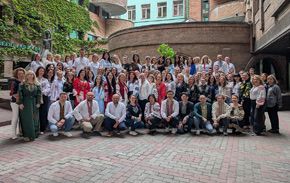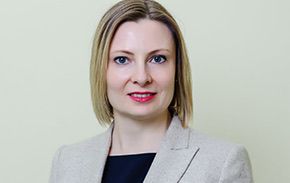NV business, April 2025
Ukraine's post-war recovery is impossible without long-term investments and access to international financial resources. How do banks attract these funds, what role do global financial institutions play, and why artificial intelligence is not a replacement for people, but a tool for their efficiency? Vitalii Kucher, Board Member, Chief Financial Officer at Credit Agricole, spoke about this and many other issues in an interview.

ー How has the economic instability of recent years affected the bank's approaches to financial planning and risk management?
ーThe war caused serious macroeconomic imbalances: a negative trade balance, a shortage of currency, an outflow of personnel abroad, and growing needs of the defense sector. However, thanks to professional management of state finances, in particular by the NBU and the Ministry of Finance, Ukraine managed to maintain relative stability, controlled inflation, and a stable exchange rate of hryvnia. Moreover, within the Ukraine's European integration, we are undergoing certain changes in legislation, in particular, increasing capital requirements. It is not easy to do this in times of war, but when, if not now? Against the backdrop of all these processes, the banking system remains liquid, capitalized, and continues to generate significant financial results and support the economy.
At the same time, the structure of banks' assets has changed significantly: 80% of assets are government securities and deposit certificates of the National Bank of Ukraine, while the share of customer business has decreased. This is a temporary necessity, as banks insured themselves against risks, minimizing possible losses. However, for sustainable economic development, it is necessary to resume business lending and invest in projects.
Thanks to the resilient business model of Credit Agricole Ukraine, our balance sheet has grown 2.5 times since the beginning of the war, we have a stable liquidity inflow, and we have maintained the confidence of depositors. The key decision of the Group's management was to reinvest the profit for 2021-2023 in the equity, which will increase lending opportunities. We strive to support our customers’ business and contribute to its development.
Due to balanced risk management, the quality of the bank's assets remains high: the share of bad loans is low, the financial state of customers is improving, which allows us to resume lending. Since the beginning of the war, we have issued car loans worth over UAH 6 billion, with a minimal level of defaults. This indicates that the economy is functioning, and people are willing to make significant purchases.
The main challenge for the banking system is to return to a balanced asset mix and normal functioning. This requires long-term security guarantees, a positive business climate and a stable macroeconomic environment. Banks are ready for this transformation, and we are confident that we will be able to effectively support recovery and economic growth.

ー What key business directions and strategies ensure the bank’s sustainability in the current macroeconomic environment?
ー We always strive to be useful for customers, the economy and society. If a bank does not bring value, it loses its position. That is why Credit Agricole focuses on key areas of development, namely automotive lending, agro lending and corporate banking, as well as premium banking. The bank is one of the leaders in automotive lending with a market share of 28% and we plan to develop further.
Agro lending, in turn, is part of the DNA of our Group, and we are committed to supporting agribusiness, an industry that generates a significant share of Ukraine’s foreign exchange earnings. Loans to the agricultural sector account for 50% of the bank's corporate loan portfolio. We provide comprehensive financial solutions thanks to the in-depth expertise of our managers and a number of partnership programs for working capital replenishment, upgrading of the machinery fleet, investments in fixed assets, etc. For two years in a row, we have been recognized as the best bank for agribusiness according to the "TOP-100: Ratings of the largest".
Of course, we continue to improve our retail banking offers, and offer a comprehensive solution for IT entrepreneurs, premium service, cash loans on favorable terms, etc.
Credit Agricole is a bank with more than 140 years of history and is No. 9 in the ranking of global financial groups by assets. Its presence in Ukraine sends a strong signal to international investors, but a favorable investment climate, political stability and security are vital for attracting significant investments. It is systemic investors like Credit Agricole that can create financial bridges for the country's development.
Our core principle is to be a useful and reliable partner. We follow a customer-centered approach, offer solutions and always support our customers, which is why they stay with us for a long time.
ー What financial result do you envisage within the bank's new AIR 2028 strategy and how do you plan to achieve this result?
Last year we presented the AIR strategy: Aim is to Invest in Recovery, which was supported by the international Group. Our goal is to invest in recovery. And the bank is already doing this: more than UAH 8 billion in taxes and fees for the period 2022-2024. We have allocated more than UAH 150 million to charity, mainly to support hospitals.
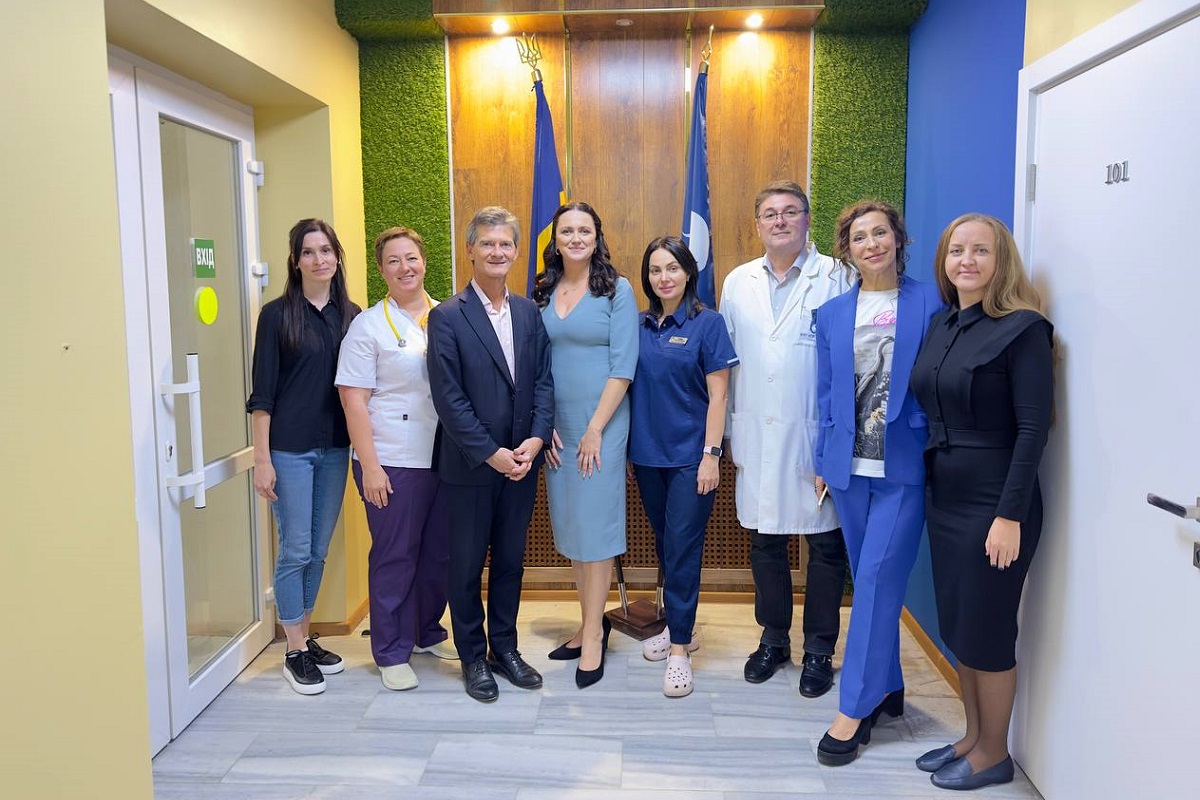
We want to balance our asset structure, lend to the real sector of the economy and demonstrate a positive financial result due to this.
In terms of agro lending, we plan to increase our market share by developing leasing, factoring and new financial products. As for automotive lending, we are increasing our risk appetite and strengthening cooperation with importers and insurance companies. In corporate business, we are actively investing in cash management, digital solutions and partnership programs.
Ukraine's large-scale recovery requires about USD 500 billion, while the banking system can finance only 10% of this amount. Therefore, we act as a bridge between Western investors and the Ukrainian economy by attracting international funds and financing programs. As part of our cooperation with the EBRD and IFC, we have already attracted EUR 240 million, and we want to develop this kind of partnerships.
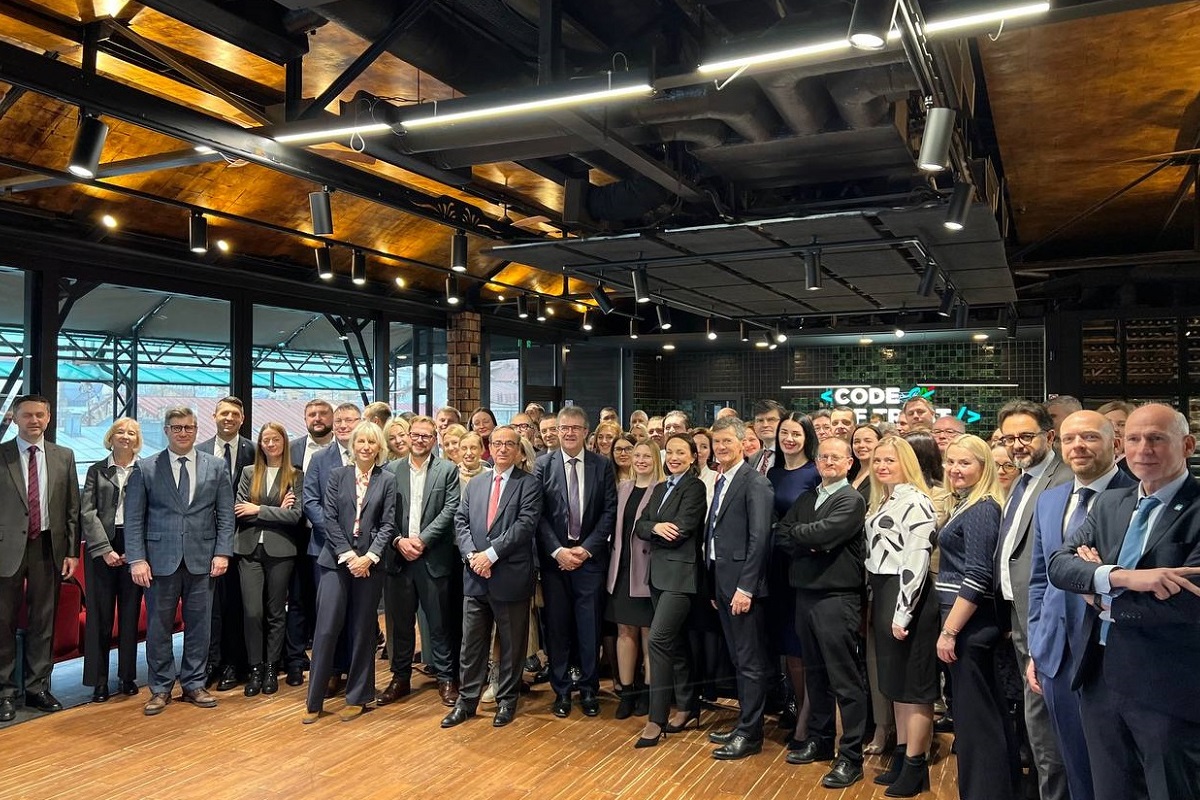
In order to stimulate investment, we have created a special project Go Ukraine! that promotes cooperation between Polish and Ukrainian companies that have a common business interest. A separate direction is IT customers: we plan to expand our presence in this segment through partnership programs and digital solutions.
We have the equity to increase our loan portfolio by EUR 500 million. We are not just waiting for favorable terms, but are already acting: attracting partners, initiating projects, and preparing the ground for future investments. Ukraine's recovery starts today!
ー What are the advantages of the bank's international status and how do they manifest themselves in direct work with your customers?
ー The international status of the bank is not only about transparency, reliability and trust. The main thing is the potential for development. The CEO of Credit Agricole S. A. visited Ukraine three times during the war. During his visit in 2025, he assured that the Group has a long-term vision of its presence in Ukraine, and the bank is an important component of the Credit Agricole Group's development strategy in Europe. This is a clear signal: The Group is ready to allocate resources to economic recovery, support of business and society.
We have already made decisions on equity allocation and the formation of a buffer for growth. However, it is important that by proving the effectiveness of management and strategy implementation, we will be able to attract even more resources for customer and market development. And since the beginning of the war, the Group has established a EUR 10 million solidarity fund to support customers and the team. These are not just slogans - these are specific actions that are transformed into real projects.
ー Credit Agricole is strengthening its cooperation with international financial institutions, in particular with the EBRD and IFC. What role does this cooperation play in providing liquidity and attracting long-term investments to Ukraine?
ー Cooperation with international financial institutions, such as the EBRD and IFC, is vital for Ukraine's financial stability and recovery. They can be compared to oxygen for the body - they mobilize the necessary resources through donors, including governments and large institutional investors, and direct them to targeted programs.
International financial institutions can raise substantial funds, but they need partner banks that are involved in risk analysis and project implementation, have contact with customers, understand the market, and can allocate these resources efficiently.
If we look at the history of post-war recovery in other countries, such institutions have always played a significant role. They help not only to raise funds but also to build rapid development mechanisms that can make recovery not a matter of decades but a realistic prospect for the coming years. Our task today is to gain experience so that we can be ready for large-scale financial investments in the future.
ー How does Credit Agricole apply innovations to improve the customer experience?
ー We invest in the development of digital solutions. Recently, the bank launched online onboarding, which significantly improved the customer path. Private individuals can become Credit Agricole customers remotely in a few minutes and get all the benefits of easy and reliable daily banking
Moreover, we focus not only on digitalization but also on maintaining human interaction. We follow the "100% digital, 100% human" model so that customers can choose a convenient format of interaction: digital services or a visit to an outlet.
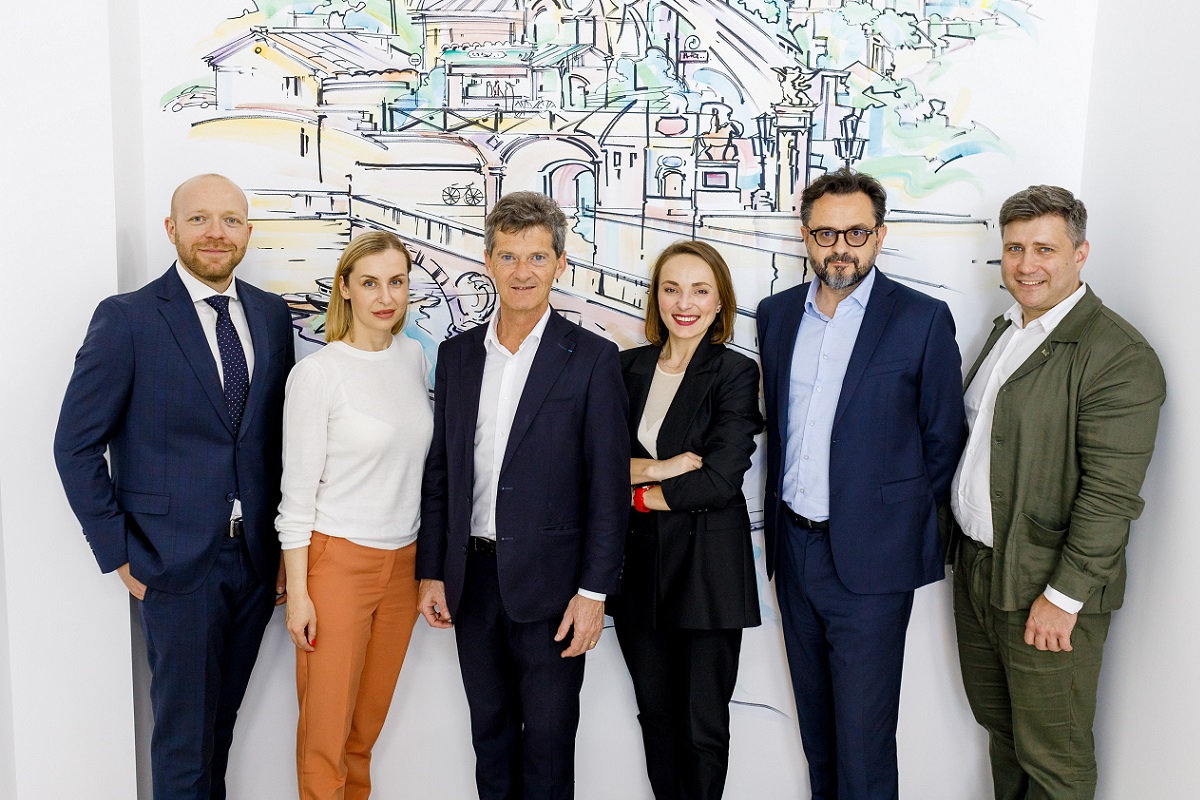
70% of our investments are allocated to customer applications and services, 20% to improving the IT infrastructure, and another 10% to upgrading outlets, including their energy independence.
We are also closely monitoring the development of fintech, as the opening of the market to European players, including digital banks, is inevitable. However, Ukrainian companies have every chance to compete well due to their flexibility, quality of service, and profound understanding of the local market.
ー Taking into account the growing importance of artificial intelligence and data analytics in banking, how does Credit Agricole Ukraine integrate these technologies to improve financial forecasting, risk assessment and customer experience?
ー We are actively studying the experience of using artificial intelligence and robotics in the banking sector and have already implemented more than 100 automated processes. This is a standard practice for all repetitive operations that do not require complex solutions. Automated processing of electronic documents reduces processing time by 7 times and reduces operating costs.
As for artificial intelligence, its role is more interesting and strategic. For example, in customer support, AI analyzes data and helps managers offer customers relevant products.
We are also working on AI solutions for financial security. For instance, an online payment screening system analyzes transactions for fraud, sanctions risks, and other threats.
However, for us, artificial intelligence is not a replacement for humans, but a tool that enhances work efficiency and allows us to focus on what matters: personal communication with customers and building long-term relationships.
ー What financial and technological innovations will shape the future of banking in Ukraine and what role will Credit Agricole play in this technological future?
ー Technological innovations in the banking sector should be justified and linked to business cases. The future of financial technology in Ukraine depends on the extent to which products and solutions are able to create real added value and attract investment.
Each bank forms its strategy based on its strengths and market positions. It is important to find those sectors with prospects and potential for commercialization, because then investors will come there and technology development will become possible.
Credit Agricole is an active investor in technology solutions. We allocate a significant share of our budget to support segments where we have strong positions, such as risk assessment, efficiency improvement and automation processes. The greatest emphasis is placed on artificial intelligence, electronic document management and development of digital services.
ー Please tell us about Credit Agricole's global plans for the future
ー We prioritize the main sectors, namely agriculture, automotive and IT. Also, we are actively building and strengthening these ecosystems, in particular through the development of leasing, factoring and digital solutions. We will also continue supporting key industries that are essential for the country's recovery: construction materials, renewable energy (including bioenergy), and logistics. Other important areas for us are energy and the green economy, which are essential for the country's sustainable development.
In general, we strive to contribute to the development of Ukraine's financial ecosystem, which will include banks, insurance companies, specialized financial institutions, leasing and factoring. Despite the difficult predictability, we are ready and are already contributing to Ukraine's recovery. We count on our expertise and support of the international Credit Agricole Group in this regard.

 Useful information
Useful information
 Useful information
Useful information
 Useful information
Useful information
 Useful information
Useful information
 Useful information
Useful information
 Useful information
Useful information
 Useful information
Useful information
 Useful information
Useful information
 Useful information
Useful information
 Useful information
Useful information
 Useful information
Useful information
 Useful information
Useful information
 Useful information
Useful information
 Useful information
Useful information
 Useful information
Useful information







